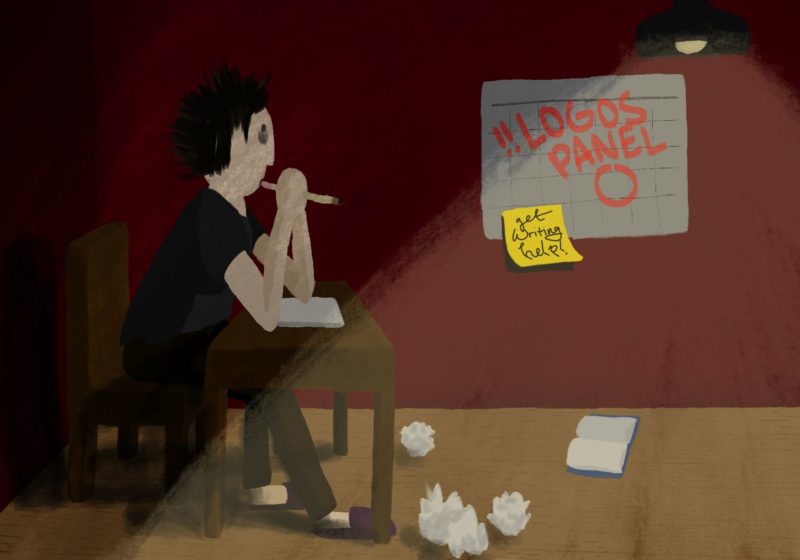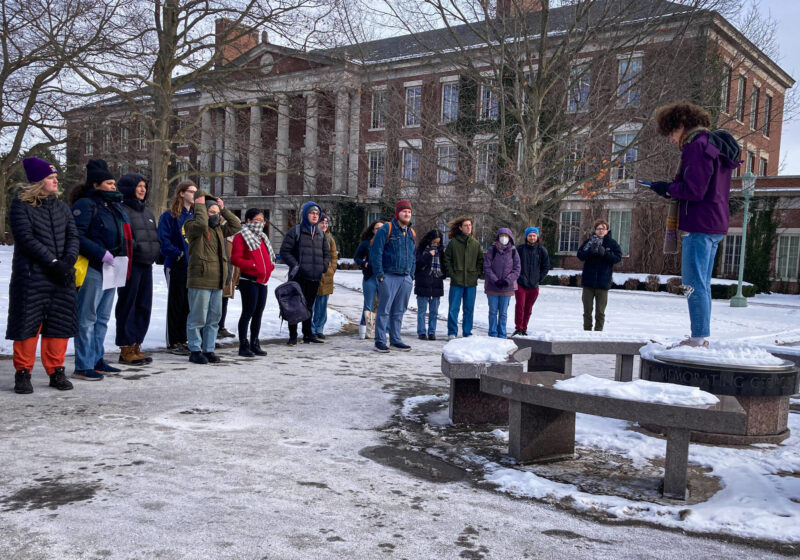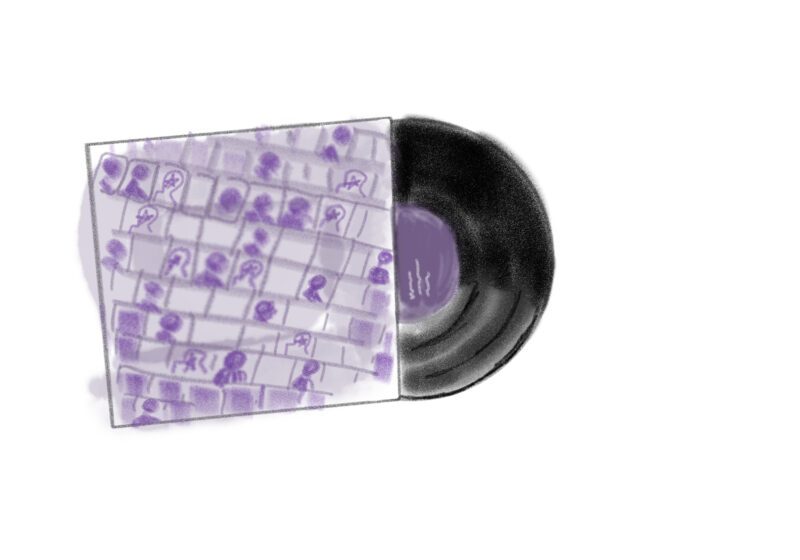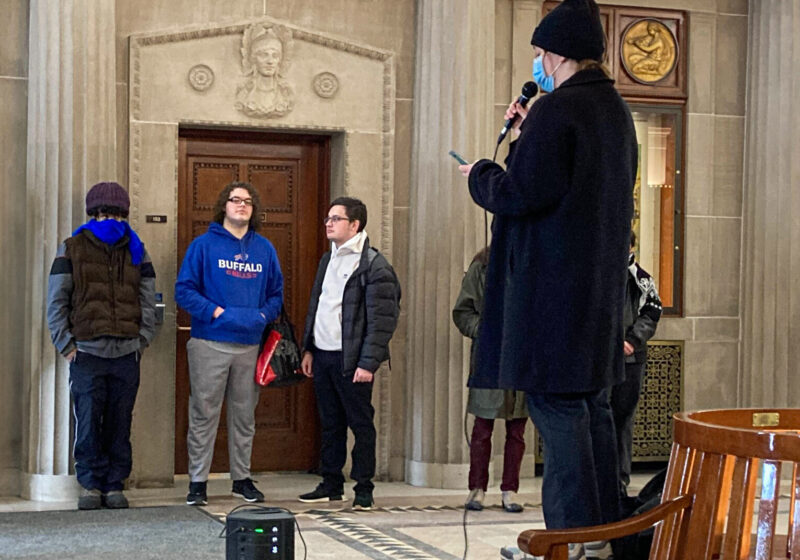“Can you commit 10 years without any recognition?”
If all of your hard work and personal milestones went unnoticed and unacknowledged for years before getting a chance to garner even a shred of public appreciation, would you still want to pursue such work? Would you even start in the first place knowing this is what’s to come?
This was one of the discussion points that made me (along with many other students, I’m sure) shift uncomfortably in my seat at UR LOGOS’s recent event, “Screaming Into the Void.” However, creative writing faculty members David Hansen, Jennifer Grotz, and Stephen Schottenfeld helped ease such discomfort by offering insight on how to faithfully keep a practice, find feedback, and sharpen skills as a writer through an enlightening discussion-based panel this past Thursday night.
One of the key takeaways from the event was that as a writer — especially a writer trying to gain recognition — one must have patience in every sense of the word. Honing your craft, developing skills, and building any kind of a name for yourself takes time. Hearkening back to the question posed at the beginning of this article, Schottenfeld expressed how in his early career, he took comfort in the idea that the process of becoming an established writer is one that takes many years. While such a concept might seem disheartening to some, Schottenfeld said that he found solace in the sentiment, as it implies that it’s okay that success doesn’t happen overnight — it takes time. Grotz also pointed out that the American ideal of being immediately successful in one’s 20s is partially to blame for the anxiety that some young writers may feel. “Cut yourself some slack and be patient with your life,” she reassured students, emphasizing that you can never be “unpublished” once you’re published.
Another comforting notion brought up was that an unrelated career path neither validates nor negates one’s status as a writer. What makes someone a writer is their devotion to the craft, and the panelists emphasized that writers can (and often do) hold all different kinds of jobs. Grotz even brought up her history of waitressing and plumbing as aspects of her own career path. “You can make your own trajectory,” she told the audience. Moreover, experiences outside of the writing world could lend themselves to quite the creative material. Writing is fueled by one’s lived experiences and unique perspectives, so career paths — no matter what they entail — can make for great inspiration.
One of the other topics discussed was the process of knowing when a piece is finished. The panelists agreed that it’s based on intuition. Schottenfeld assured students that at a certain point, “you feel like there is something whole about what you’ve said,” and Hansen added that there typically comes a moment in his writing where he feels he has “said enough.” He admitted that oftentimes, concluding a piece using this intuition may result in it feeling incomplete, but that such a quality can actually be “kind of nice.” When the reader is able to imagine all the open-ended possibilities and implications of a work, it can make for a far more engaging and powerful experience with lasting effects. Hansen also pointed out that simply deciding to end a story can be helpful in combating perfectionist tendencies in writing, expressing that he would rather write several small “bad” stories than obsess over one forever.
As the night drew closer to an end, the question that everyone (or maybe it was just me) was waiting to dive into came up — how does one get published? The panelists gave several helpful tips on different approaches, such as reading a wide range of works and learning about where they were published. However, in the midst of such advice, the panelists made clear that writing is not about publishing. It’s about the process.
The process is the best part of writing — or any art form, for that matter. It’s where one can find the joy in building their own unique world in their mind. If every piece of creative work was instantaneously conceived with little to no thought, what fun would that be? Would art even be art without the effort and emotion that one puts into it? Would artists ever learn anything new or challenge themselves without experiencing the process? When a work is still in progress, there are endless possibilities as to where it could go, which, although potentially daunting, is the most exciting part of creation. Like many things in life, the anticipation of something can often be better than its actual fruition. Sometimes, the best part of going on vacation is not even the vacation itself, but the excitement leading up to that vacation. Why can’t the same be true for writing?
The panel’s comments implied that far too often, writers can get wrapped up in this end goal of publishing and the idea that it is the “golden ring” of writing. To curb such a mentality, they encouraged students to embrace the process and write purely out of enjoyment and passion — not necessarily to obtain commercial success or recognition.
“The process is actually more pleasure than you will probably acknowledge it to be,” Grotz affirmed. It’s “why we’re writers.”





